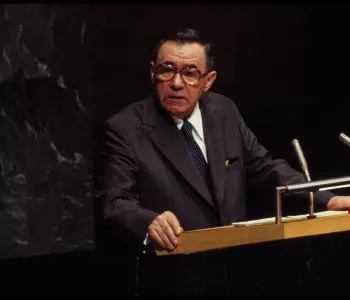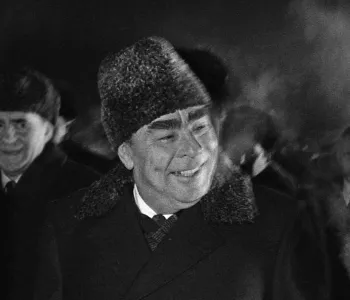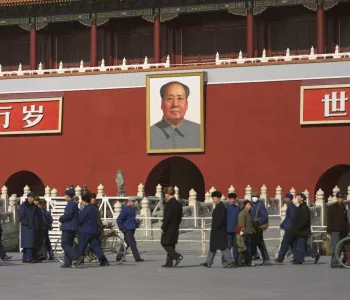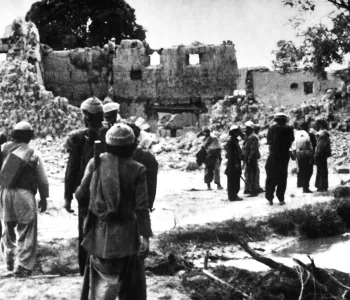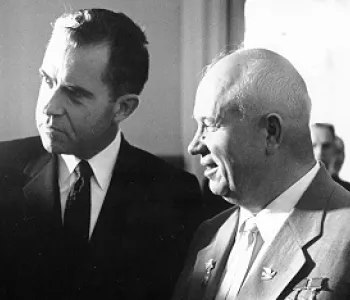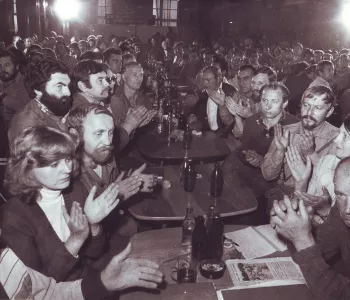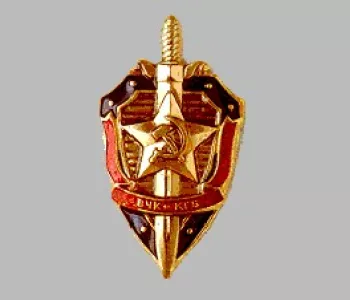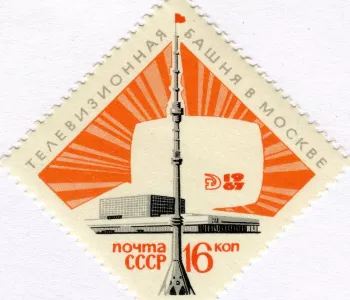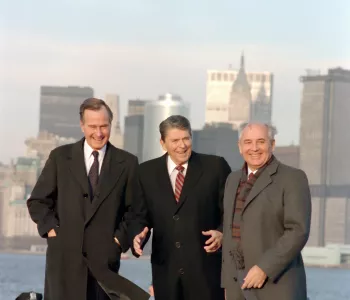d'Vinci

Andropov, Yuri Vladimirovich 1914- 1984
Yuri Vladimirovich Andropov was a Soviet politician and General Secretary of the CPSU from November 12, 1982 until his death in 1984

Yuri Vladimirovich Andropov's place of birth and parentage is uncertain, but he was probably born in Nagutskoye near Stavropol in southern Russia. He was briefly educated at the Rybinsk Water Transport Technical College before he joined Komsomol in 1930. He graduated to the full party in 1939 and was first secretary of the Komsomol in the Karelo-Finnish Republic from 1940 to 1944. After the war, he moved to Moscow in 1951 and joined the party secretariat.
Following Stalin's death in March 1953, Andropov was demoted and "exiled" to the Soviet Embassy in Budapest by Georgy Malenkov. He played an important role in the Soviet invasion of Hungary in 1956.
Andropov returned to Moscow to head the Department for Liaison with Socialist Countries (1957-1967) and was promoted to the Central Committee Secretariat in 1962, succeeding Mikhail Suslov, and in 1967 he was appointed head of the KGB. In 1973 Andropov became a full member of the Politburo, and he also remained as head of the KGB until 1982.
A few days after Brezhnev's death on November 10, 1982 Andropov appointed as General Secretary over Konstantin Chernenko. He was the first head of the KGB to become General Secretary. He quickly added the posts of President of the USSR and chairman of the Defense Council.
During his rule he made attempts to improve the economy and reduce corruption. He was also remembered for his anti-alcohol campaign and struggle for enhancement of work discipline.
His rule was marked by the deterioration of relations with the US, due to the strongly anti-Soviet stance of Ronald Reagan. International relations were also exacerbated when Soviet fighters downed a civilian jet liner that strayed over Russia on September 1, 1983, and the deployment of American Pershing missiles in Europe.
After several months of deteriorating health Andropov died of Kidney failure on February 9, 1984. Andropov was succeeded by Chernenko.
